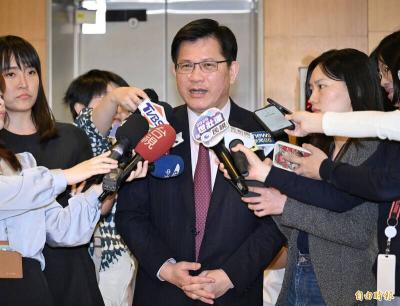President Ma Ying-jeou (馬英九) yesterday said he would never sell out Taiwan, while promising that an economic pact his administration wants to sign with Beijing next year would not allow more agricultural products or workers from China.
Ma made the remarks in a weekly video address in which he had a conversation with a village warden, Huang Hsien-yao (黃憲耀), of Chiayi County’s Minsyong Township (民雄). The video was made available on the Presidential Office’s Web site yesterday.
Huang said the two sides of the Strait have held four official talks, but he heard underground radio stations say that an economic cooperation framework agreement (ECFA) the government wants to sign with Beijing would sell out Taiwan.
Ma said that when he was running for president, those radio stations also said the NT$6,000 monthly pension for senior farmers would disappear if he were elected.
“But now you see, they get it every month,” he said in Hoklo, or Taiwanese. “So I am asking the public to please trust me that what Ma Ying-jeou promises, he will deliver.”
Ma said that since he took office in May last year, he has not allowed any more Chinese agricultural products to enter Taiwan, adding that he would continue to protect the public’s interests.
“I will not sell out Taiwan. I will only sell Taiwan’s fruit,” he said.
Ma said the previous Chinese Nationalist Party (KMT) administration allowed 479 agricultural products to be imported from China. Ma said the Democratic Progressive Party administration of former president Chen Shui-bian (陳水扁), however, allowed 936 more agricultural products to be imported from China, totaling 1,415. Since he took office about 19 months ago, he has not added a single item to that list, he said.
In other news, Ma yesterday visited Changhua County to attend the ground-breaking ceremony of the fourth expansion project of the Central Taiwan Science Park in Erlin (二林), bringing him face-to-face with protesting environmentalists.
The scene was a stark contrast to the tight security imposed by police during the visit of China’s Association for Relations Across the Taiwan Strait (ARATS) Chairman Chen Yunlin (陳雲林) last week.
Holding banners and throwing ghost money, demonstrators said the construction project would make them homeless. Since there weren’t many protesters, they were not blocked by police officers.
Ma said the ground-breaking ceremony signified the government’s resolve to support the development of central Taiwan, adding that he hoped the park would help Changhua County become a technological leader.
Meanwhile, Ma yesterday expressed regret that People First Party Chairman James Soong (宋楚瑜) could not host a banquet for Chen, but said that cross-strait negotiations should be the focal point of Chen’s meeting with Straits Exchange Foundation (SEF) Chairman Chiang Pin-kung (江丙坤).
Ma made the remarks in response to media inquiries about Soong’s complaint that the SEF was “not very skillful” in conveying Ma’s message that it was a bad idea for political parties to host banquets for Chen during his visit.

Taiwan would welcome the return of Honduras as a diplomatic ally if its next president decides to make such a move, Minister of Foreign Affairs Lin Chia-lung (林佳龍) said yesterday. “Of course, we would welcome Honduras if they want to restore diplomatic ties with Taiwan after their elections,” Lin said at a meeting of the legislature’s Foreign Affairs and National Defense Committee, when asked to comment on statements made by two of the three Honduran presidential candidates during the presidential campaign in the Central American country. Taiwan is paying close attention to the region as a whole in the wake of a

Chinese Nationalist Party (KMT) Chairman Eric Chu (朱立倫), spokeswoman Yang Chih-yu (楊智伃) and Legislator Hsieh Lung-chieh (謝龍介) would be summoned by police for questioning for leading an illegal assembly on Thursday evening last week, Minister of the Interior Liu Shyh-fang (劉世芳) said today. The three KMT officials led an assembly outside the Taipei City Prosecutors’ Office, a restricted area where public assembly is not allowed, protesting the questioning of several KMT staff and searches of KMT headquarters and offices in a recall petition forgery case. Chu, Yang and Hsieh are all suspected of contravening the Assembly and Parade Act (集會遊行法) by holding

President William Lai (賴清德) has appointed former vice president Chen Chien-jen (陳建仁) to attend the late Pope Francis’ funeral at the Vatican City on Saturday on his behalf, the Ministry of Foreign Affairs said today. The Holy See announced Francis’ funeral would take place on Saturday at 10am in St Peter’s Square. The ministry expressed condolences over Francis’ passing and said that Chen would represent Taiwan at the funeral and offer condolences in person. Taiwan and the Vatican have a long-standing and close diplomatic relationship, the ministry said. Both sides agreed to have Chen represent Taiwan at the funeral, given his Catholic identity and

Taiwan would welcome the return of Honduras as a diplomatic ally if the next president of that country decides to make such a move, Minister of Foreign Affairs Lin Chia-lung (林佳龍) said today. “We would welcome Honduras if they want to restore diplomatic ties with Taiwan after their elections,” Lin said during a legislative hearing. At the same time, Taiwan is paying close attention to the Central American region as a whole, in the wake of a visit there earlier this year by US Secretary of State Marco Rubio, Lin said. Rubio visited Panama, El Salvador, Costa Rica and Guatemala, during which he